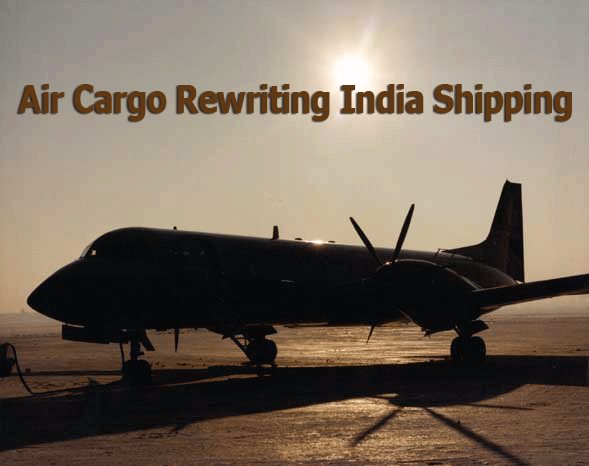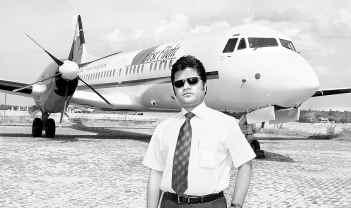
The growth in the economy has seen an explosion
in the cargo sector in the last three years.
In fact, air cargo has galloped ahead well
past the traditional favorites—railways and ships—to take
the biggest bite in freight traffic.
According to a study done by the Associated
Chambers of Commerce and Industry of India, ASSOCHAM Delhi (the country's
premier apex chamber with a membership of over 100,000 companies and professionals)
if immediate measures are not taken, railways and shipping would be the
biggest losers in the long run.
The ASSOCHAM Eco Pulse (AEP) study, 'Changing
Pattern of Cargo Traffic in India' has analyzed the three major transportation
modes -- aviation, railways and shipping – for the 2000-07 period
and found that air cargo has grown by around 19 percent as against 10.3
percent and 9.2 percent growth in shipping and railways during the last
three years.
The study quotes ASSOCHAM President Venugopal
Dhoot who has pointed out that with the government emphasizing the food
processing sector and horticulture: "There arises a need for greater
capacity in the domestic airway facility at low cost.
“In such circumstances, dedicated
freight aircraft on national and international routes would provide a
boost to industry.”
No wonder then that air cargo carriers are
ramping up operations.
In a move that surprised many in the business,
Mumbai-based First Flight Couriers Ltd., which had announced its air cargo
services not too long ago when it leased small ATPs, said that it would
end the lease of two of its small cargo planes. Instead, First Flight
will be going in for bigger aircraft.
 According
to R.K. Saboo, (right) deputy managing director, First Flight: According
to R.K. Saboo, (right) deputy managing director, First Flight:
"The company will restart operations
once we acquire bigger airplanes. We are planning to bring in two Boeing
B737-300 cargo planes on lease in the next three to four months,"
he said.
The new planes will be part of the Rs 100
cr investment that First Flight has planned in anticipation of the air
cargo boom, expected as a spin-off from the explosion in the retail sector.
Part of the investments to be made over
the next year will enable the company to enter into the third party logistics
business by setting up warehouses across the country.
First Flight Couriers with its 721 offices
at 1,800 destinations in the country handles more than 150 million shipments
every year.
The Boeings that First Flight will lease
will be put on the trunk routes plying between Mumbai, Delhi and Chennai.
These jets will be pressed into service
serving "interline arrangements with international carriers",
as Saboo put it.
The ATPs would then be used on the feeder
routes.
First Flight is in the process of tying
up with international cargo carriers for their last leg routes.
Essentially that means that goods booked
from a foreign destination to any of the cities other than those on the
trunk routes will be lifted by First Flight and delivered.
Goods booked on Lufthansa, for example,
to Ahmedabad, will be brought in to Mumbai.
For the last leg, Mumbai-Ahmedabad, First
Flight will get into the act.
Interline operations will, according to
Saboo, bring better yields than dedicated freighter operations. According
to industry sources,
First Flight's last leg interline operations
will ensure regular supply of cargo for the company.
The ATPs, which have been taken on long
lease from BAE Systems Regional Aircraft, Saboo said, will be used for
express shipments.
First Flight's move comes close on the heels
of Blue Dart, the largest integrated express courier and package distribution
company in the country.
From this month, Blue Dart has inducted
its seventh freighter, a Boeing 757, into service.
Blue Dart and First Flight
are not the only ones in the fast-forward mode.
Cargo transporter Safexpress Pvt. Ltd.,
which made a name for itself in the logistics sector by distributing the
last Harry Potter bestseller, "Harry Potter and the Half Blood Prince",
has decided to invest Rs 800-1,000 crore in the next five years by taking
a bite of the air cargo market.
Presently, a large part of Safexpress' business
involves ground transportation with only around 10 percent from air
cargo.
Operating from 550 destinations, 41 hubs
and 186 gateways, the company handled 50,000 shipments a month in 2006-07.
For air cargo, Safexpress uses bellyspace
in regular commercial carriers. To take a stake in the rapidly growing
air cargo market, Safexpress has decided to tie up with a company, as
yet unnamed, that will be starting its own cargo airline.
According to Pawan Jain, Chairman and Managing
Director of the company, the airline will only be carrying Safexpress
cargo.
In fact, Safexpress has also decided on
making Nagpur its hub for its cargo airline operation.
Slated to begin operations early next year,
the air cargo move will go hand in hand with plans to set up the new warehouses.
Tirthankar Ghosh
|



